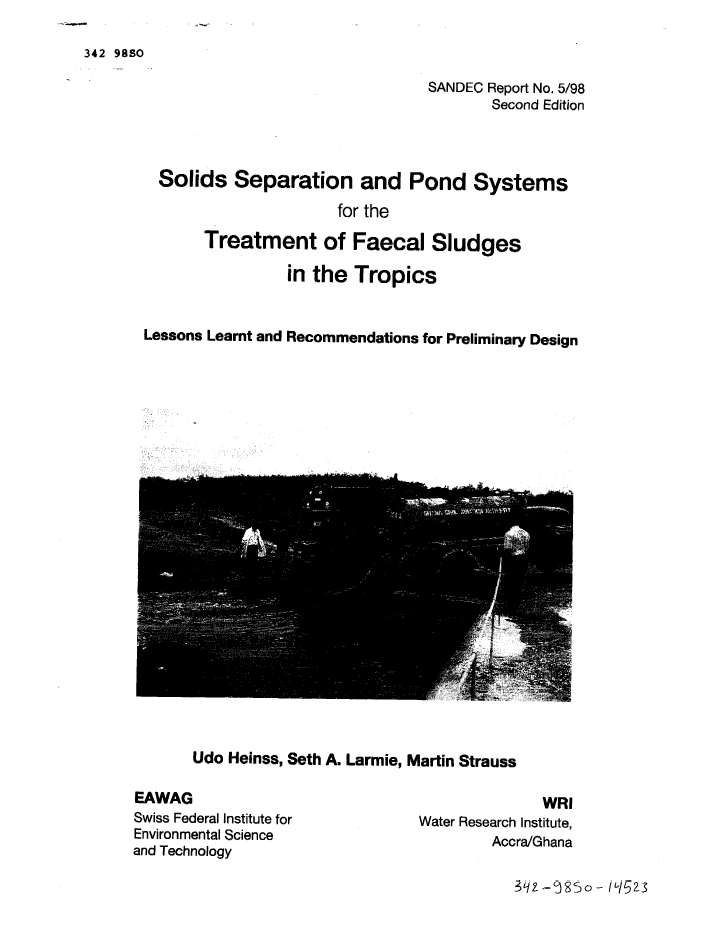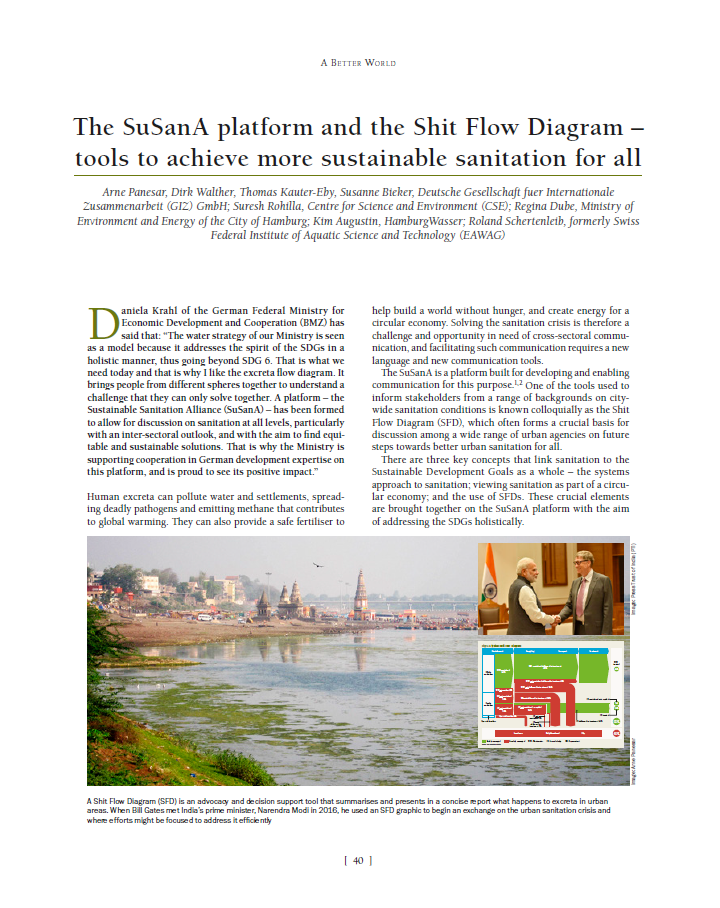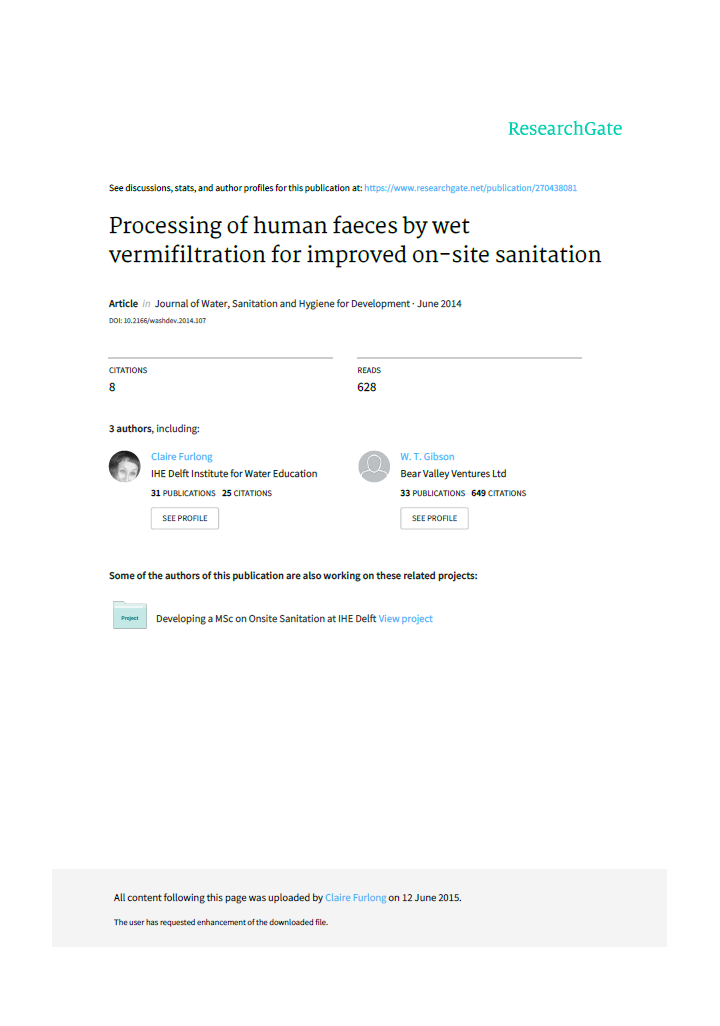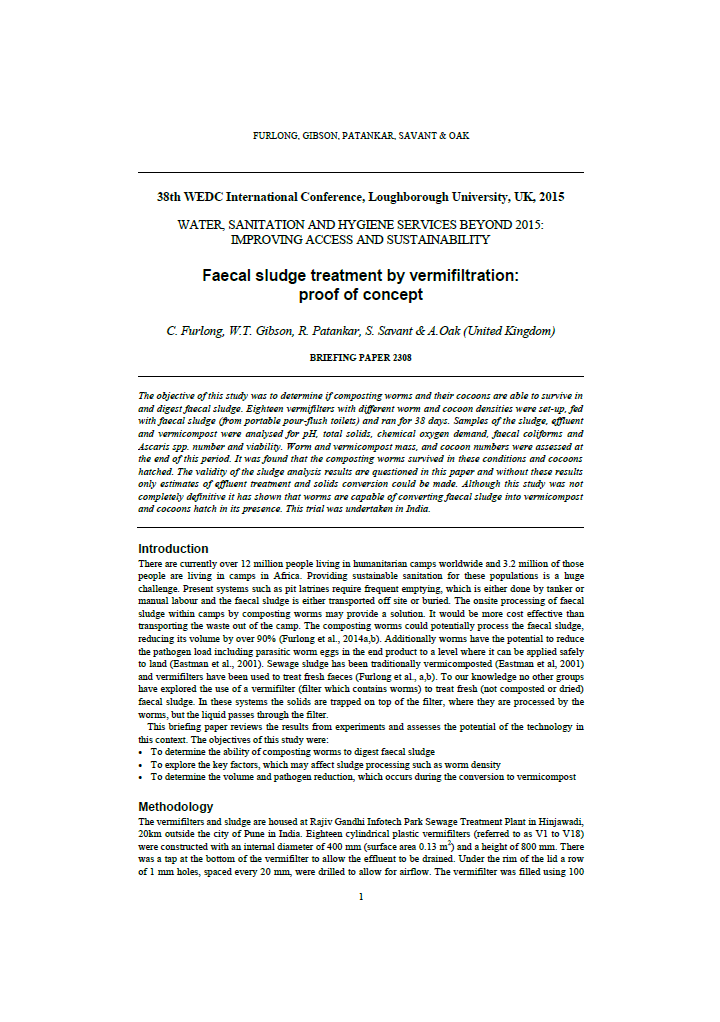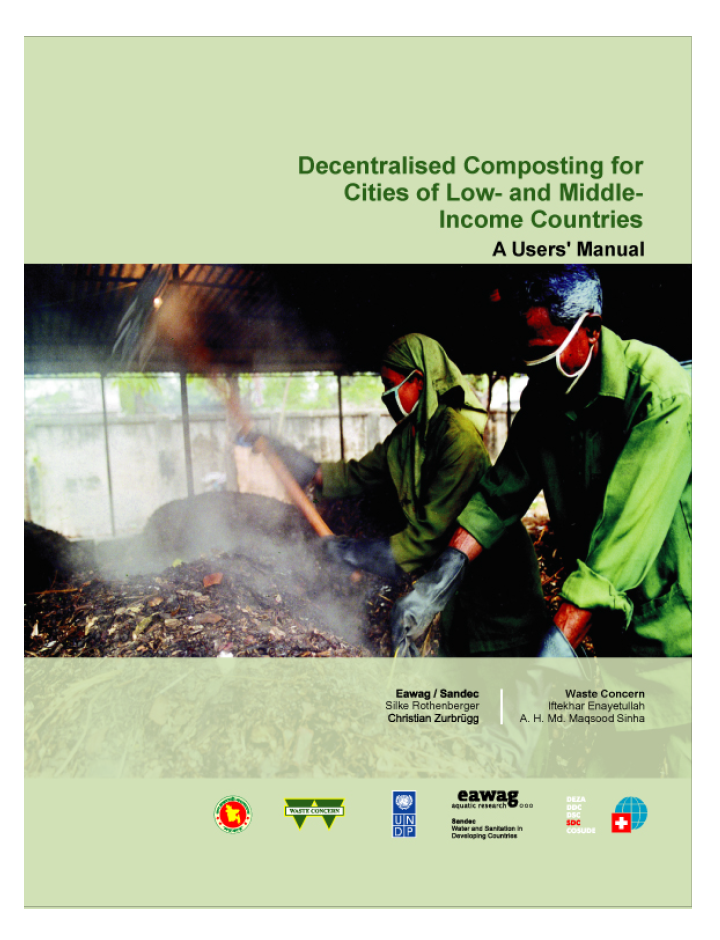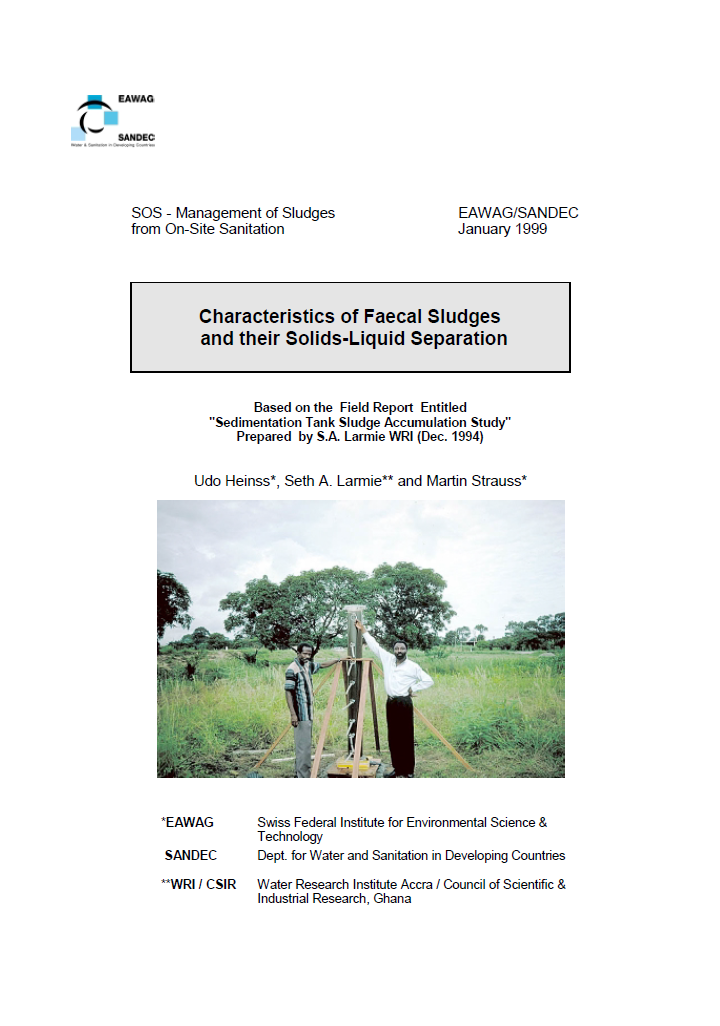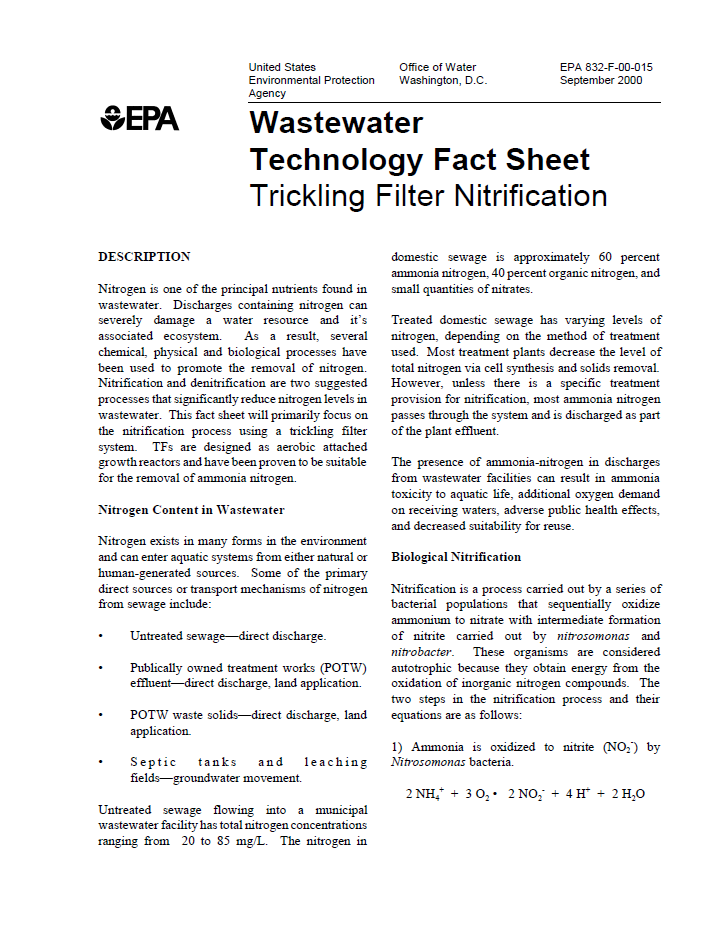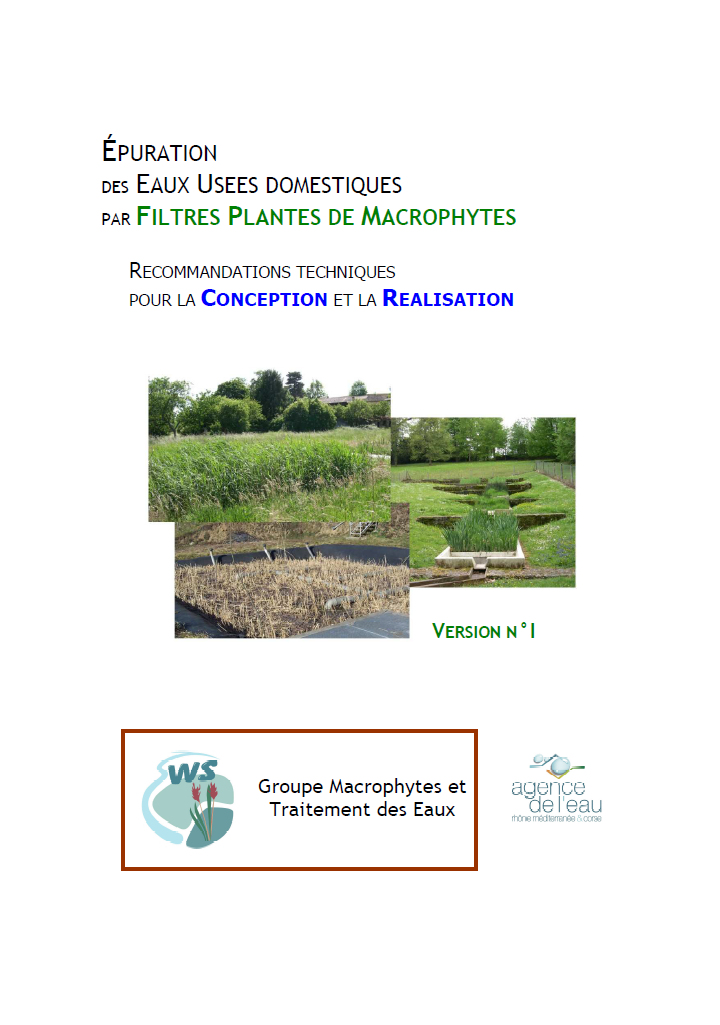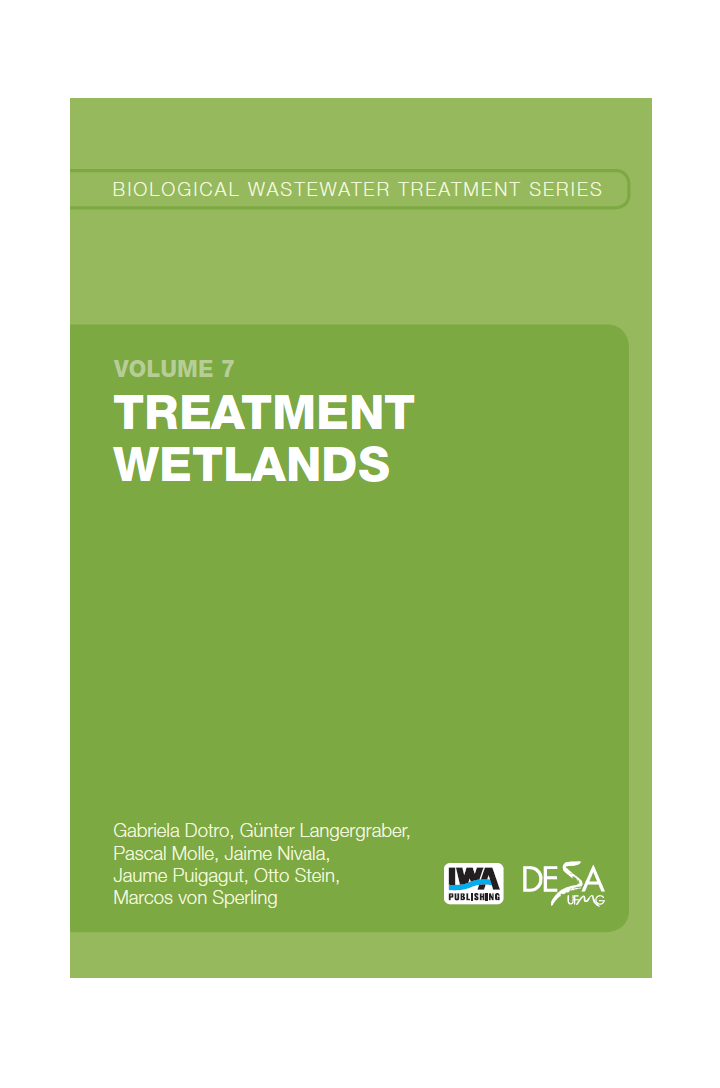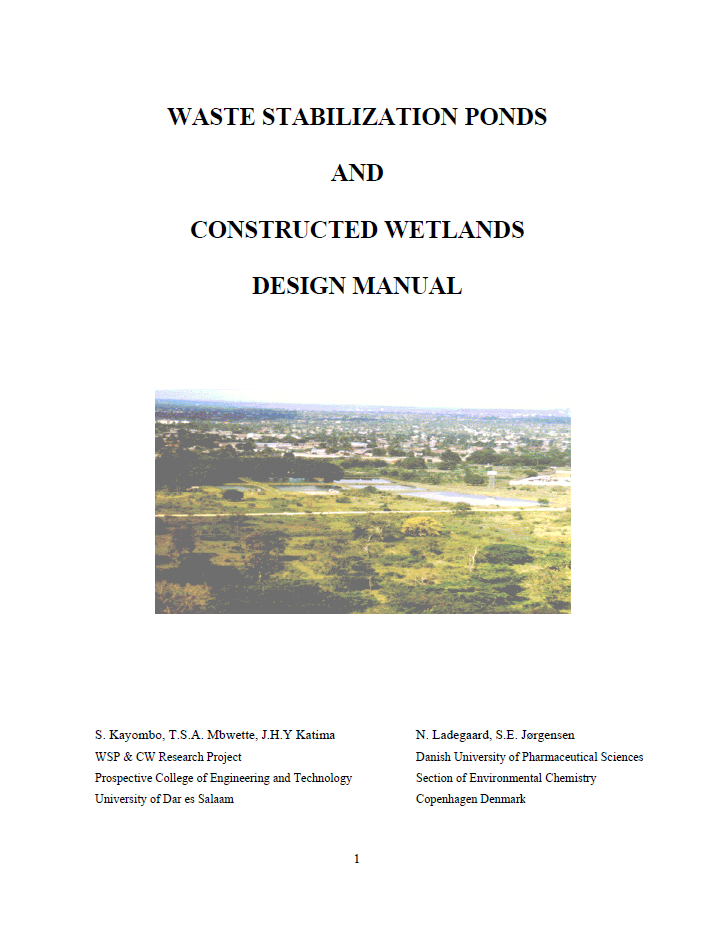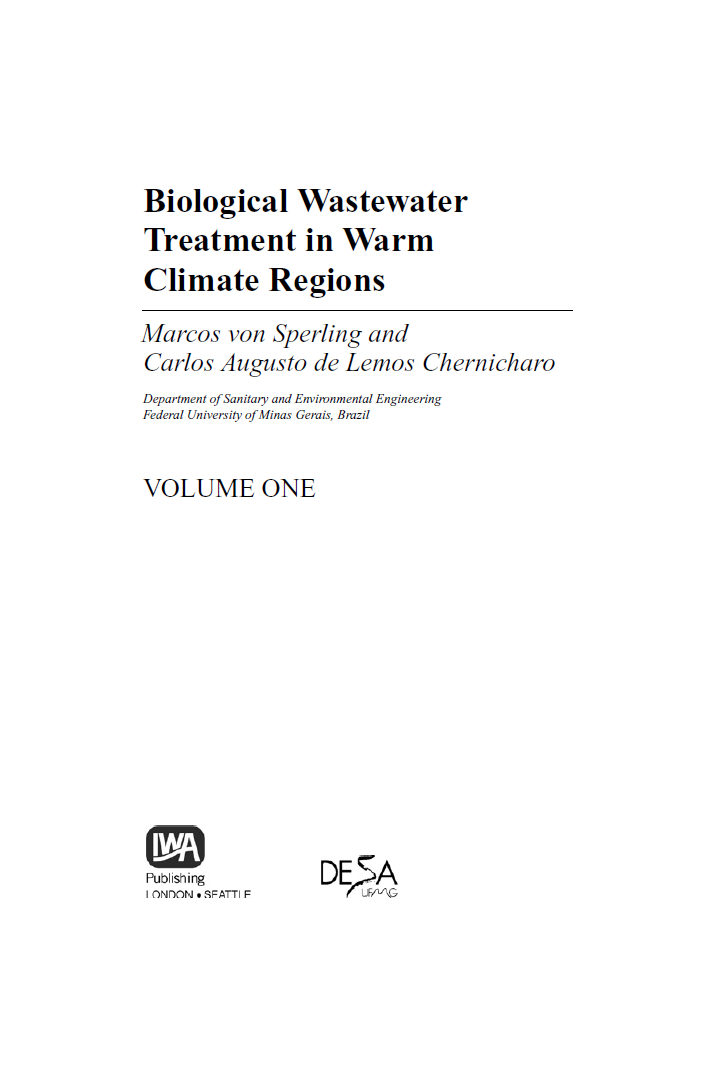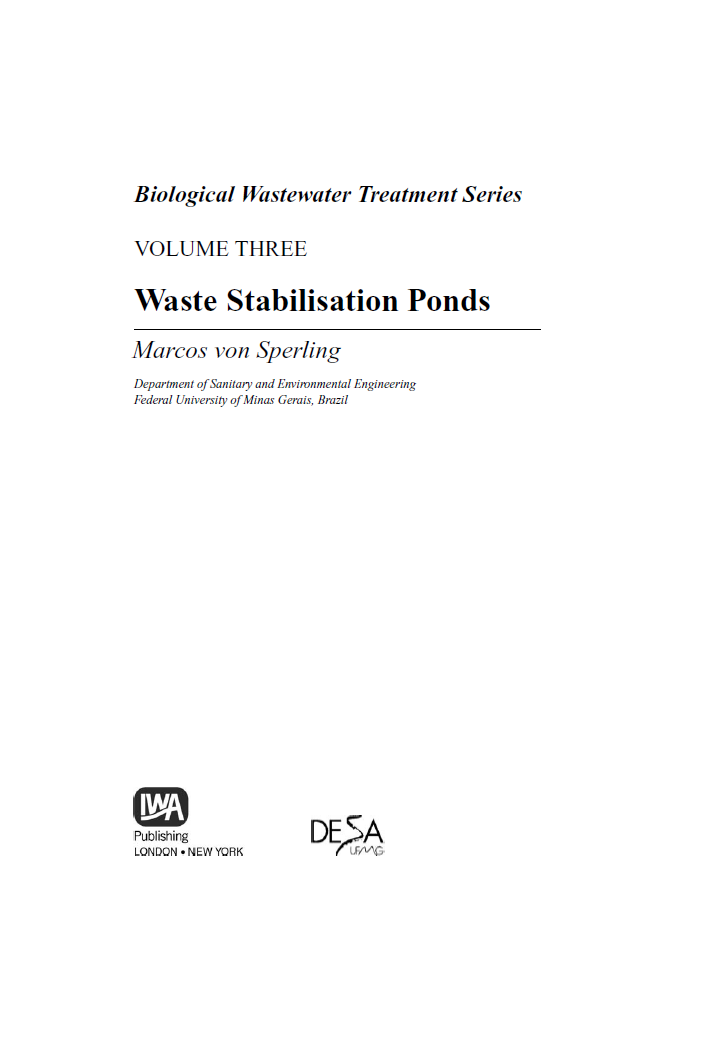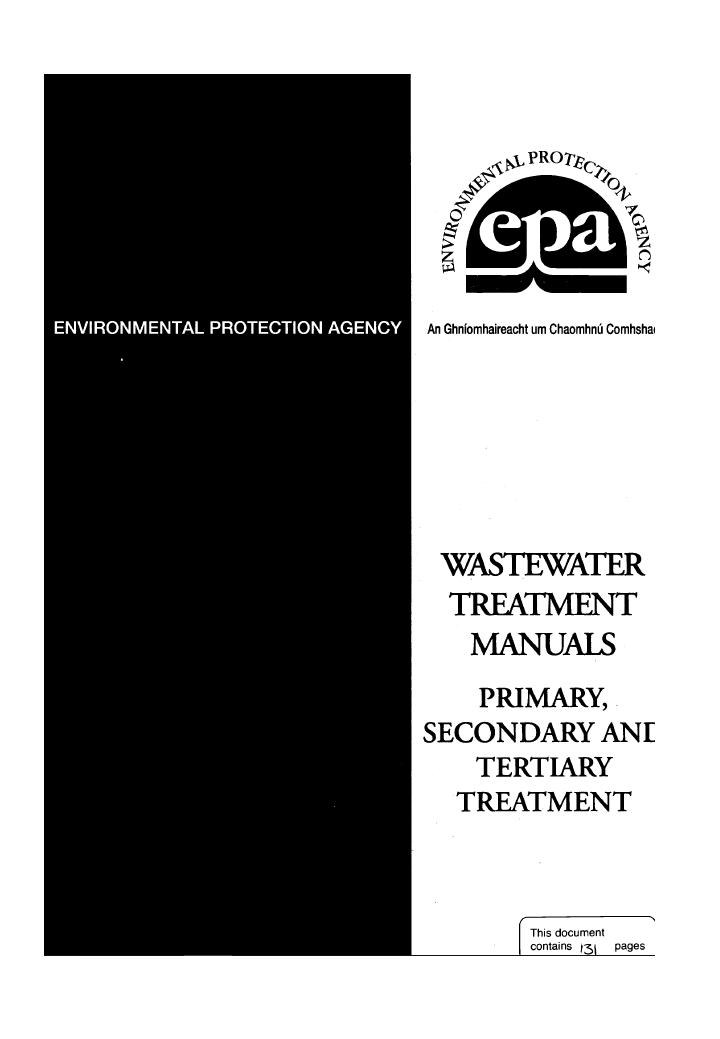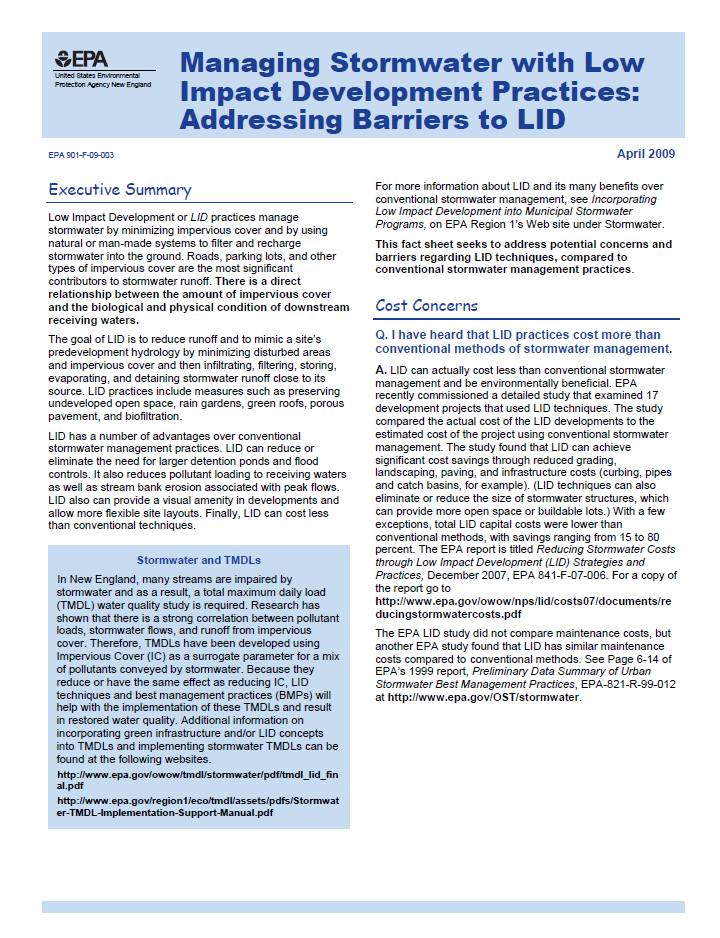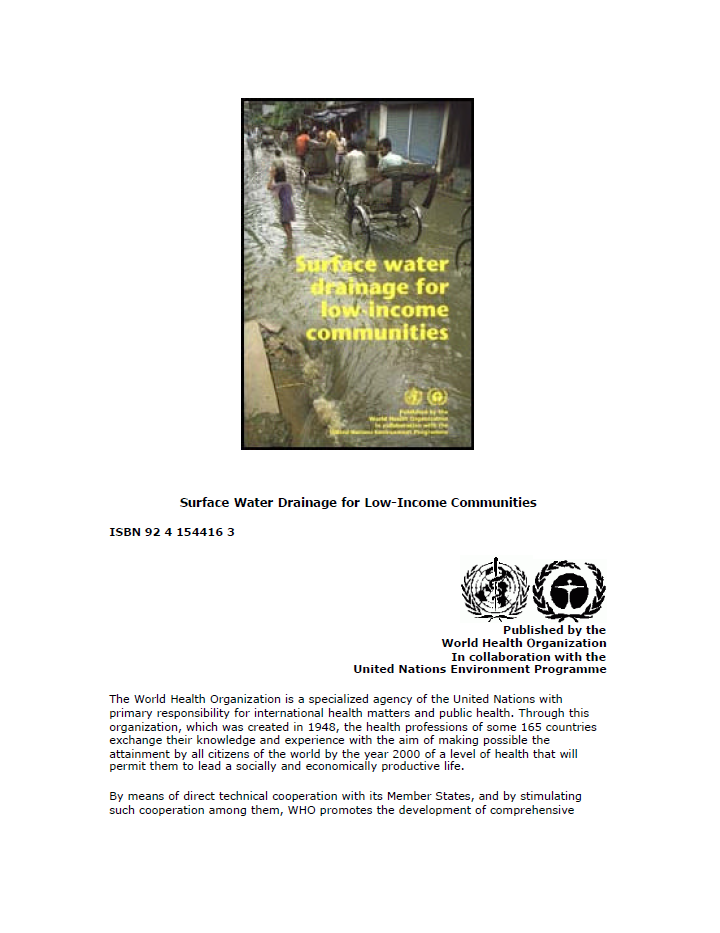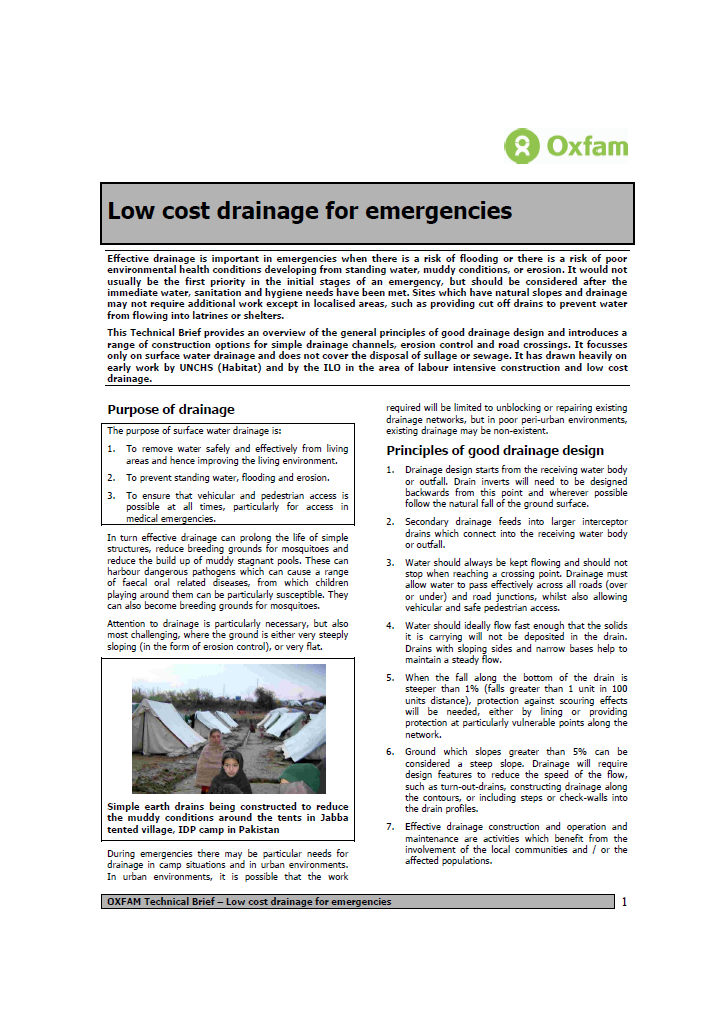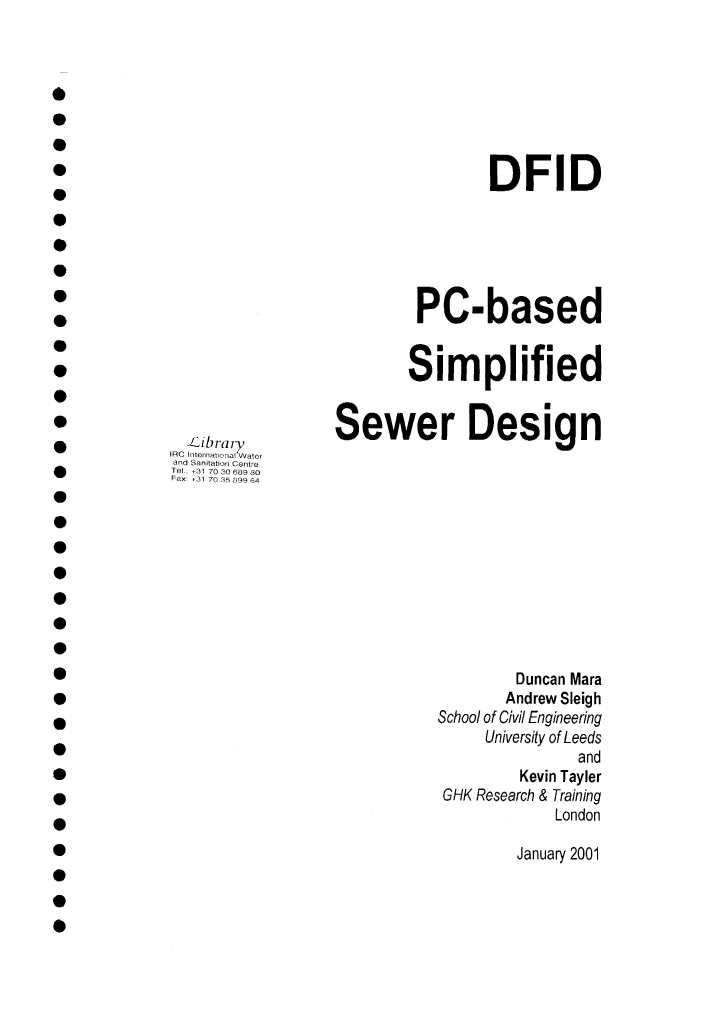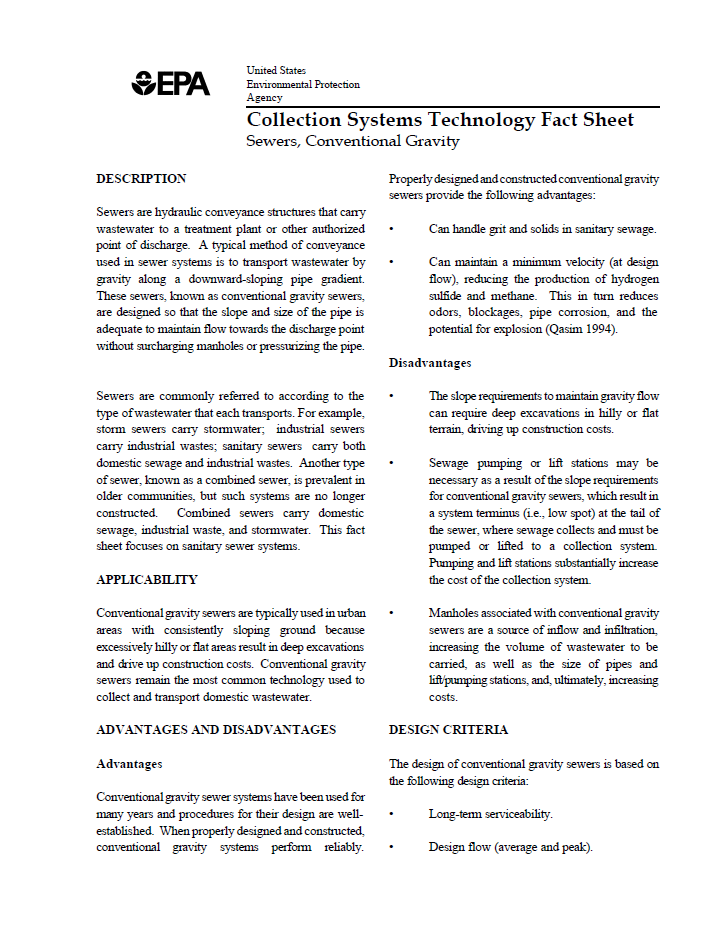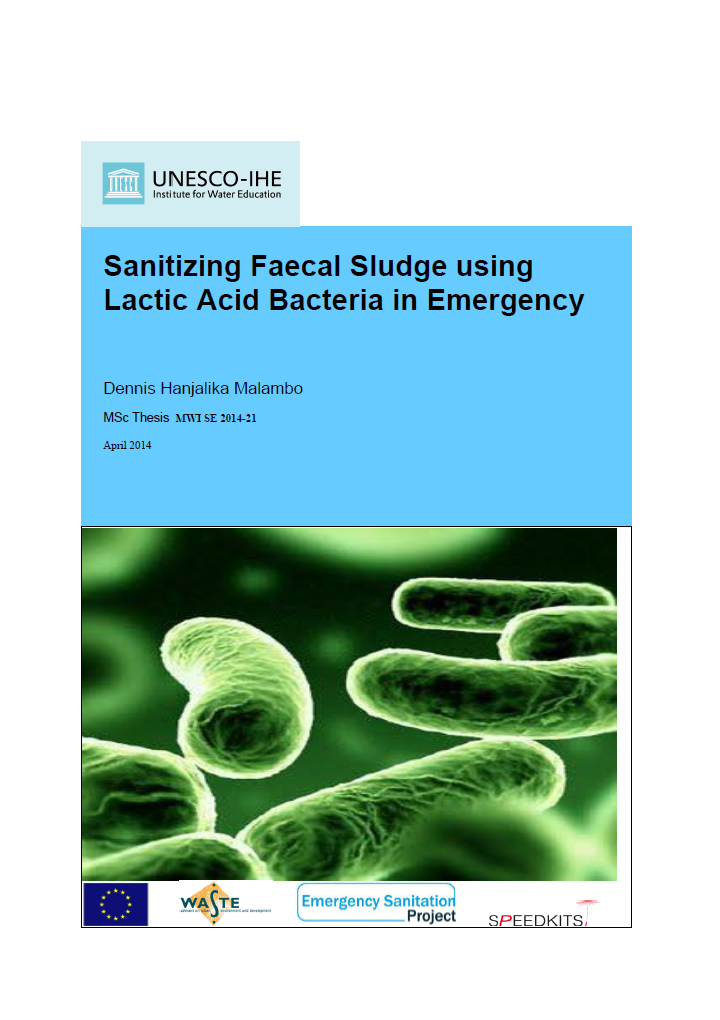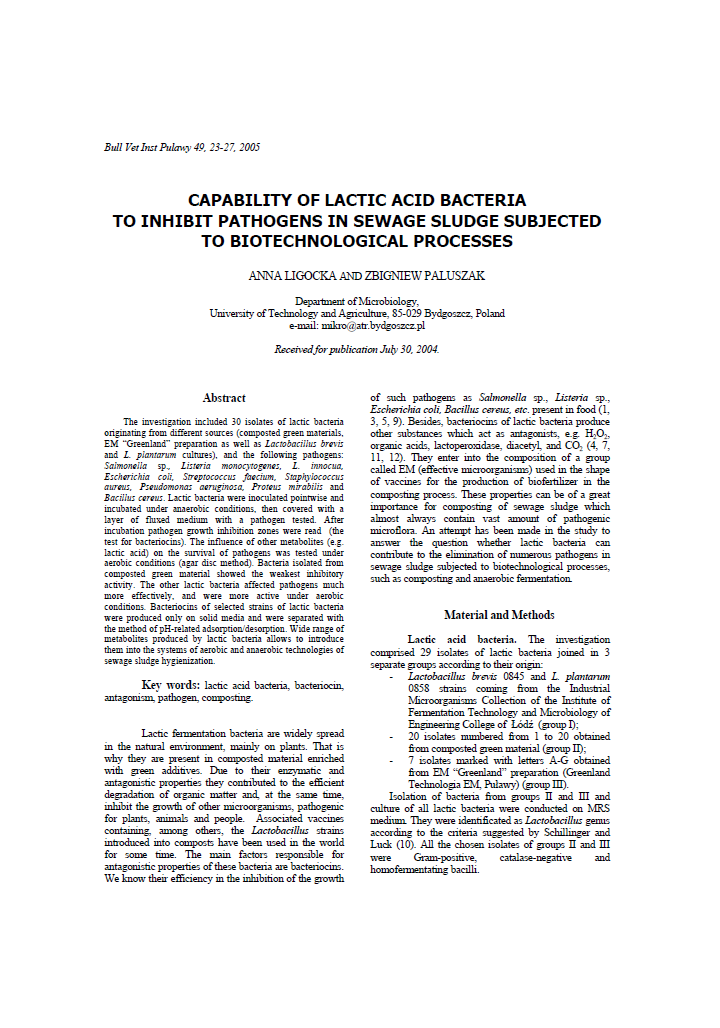Heinss, U., Larmie, S. A., Strauss, M. (1998) Solids Separation and Pond Systems for the Treatment of Faecal Sludges in the Tropics Lessons Learnt and Recommendations for Preliminary Design
The report sets out to provide guidelines for the preliminary design of faecal sludge treatment schemes comprising solids-liquid separation and stabilisation ponds. The document is based on the results of collaborative field research conducted by the Ghana Water Research Institute and SANDEC on full and pilot-scale faecal sludge (FS) treatment plants located in Accra, Ghana. Published and unpublished documents relating to the subject were also […]
Arne Panesar, Dirk Walther, Thomas Kauter-Eby, Susanne Bieker, Suresh Rohilla, Regina Dube, Kim Augustin, Roland Schertenleib (2018) The SuSanA platform and the Shit Flow Diagram - tools to achieve more sustainable sanitation for all A publication within: A BETTER WORLD Vol. 3: Actions and commitments to Sustainable Development Goal 6: Ensure access to water and sanitation for all
Daniela Krahl of the German Federal Ministry for Economic Development and Cooperation (BMZ) has said that: “The water strategy of our Ministry is seen as a model because it addresses the spirit of the SDGs in a holistic manner, thus going beyond SDG 6. That is what we need today and that is why I like the excreta flow diagram. It brings people from different […]
Furlong, C., Templeton, M. R., Gibson, W. T. (2014) Processing of human faeces by wet vermifiltration for improved on-site sanitation
The use of a vermifilter containing Eisenia fetida to degrade human faeces in a continuous wet system was explored. This paper aimed to understand the formation of vermicompost within the system, the quality of the effluent produced, and the effect of different bedding matrices. Eight filters were constructed, utilising four different bedding materials: four of these systems were seeded with 400 g of worms (vermifilters) […]
Furlong, C., Gibson, W. T., Oak, A., Patankar, R. (2015) Faecal sludge treatment by vermifiltration proof of concept
The objective of this study was to determine if composting worms and their cocoons are able to survive in and digest faecal sludge. Eighteen vermifilters with different worm and cocoon densities were set-up, fed with faecal sludge (from portable pour-flush toilets) and ran for 38 days. Samples of the sludge, effluent and vermicompost were analysed for pH, total solids, chemical oxygen demand, faecal coliforms and […]
Rothenberger, S., Zurbrügg, C., Enayetullah, I., Sinha, A.H.M. (2006) Decentralised Composting For Cities Of Low-And Middle-Income Countries A Users’ Manual
This manual has been prepared for use by local nongovernmental and community-based organisations (e.g. resident initiatives) and relevant persons in urban local governments. Private organisations or entrepreneurs interested in organic waste recycling may also benefit from this book. It may also help development agencies and other government sectors in planning waste management and composting programmes. It can be used as a basic source of information […]
Heinss, U., Larmie, S. A., Strauss, M. (1999) Characteristics of Faecal Sludges and their Solids-Liquid Separation
Based on the Field Report Entitled "Sedimentation Tank Sludge Accumulation Study" Prepared by S.A. Larmie WRI (Dec. 1994).
U.S. EPA (2000) Wastewater Technology Fact Sheet Trickling Filter Nitrification
Nitrogen is one of the principal nutrients found in wastewater. Discharges containing nitrogen can severely damage a water resource and it’s associated ecosystem. As a result, several chemical, physical and biological processes have been used to promote the removal of nitrogen. Nitrification and denitrification are two suggested processes that significantly reduce nitrogen levels in wastewater. This fact sheet will primarily focus on the nitrification process […]
Groupe Macrophytes (2005) Treatment of Domestic Wastewater by Filters Planted with Macrophytes (in French) Épuration des Eaux Usées Domestiques par Filtres Plantés de Macrophytes
Dotro G., Langergraber G., Nivala J., Puigagut J., Stein O.R., Von Sperling, M. (2017) Biological Wastewater Treatment Series Treatment Wetlands
Treatment wetlands are natural treatment technologies that efficiently treat many different types of polluted water. Treatment wetlands are engineered systems designed to optimise processes found in natural environments and are therefore considered environmentally friendly and sustainable options for wastewater treatment. Compared to other wastewater treatment technologies, treatment wetlands have low operation and maintenance (O&M) requirements and are robust in that performance is less susceptible to […]
Kayombo, S., Mbwette, T. S. A., Katima, J. H. Y., Ladegaard, N., Jorgensen, S. E. (2004) Waste Stabilization Ponds and Constructed Wetlands Design Manual
This manual provides comprehensive technical information about the planning, design, construction and operation of WSPs and CWs for a wide range of applications. To understand and design WSPs and CWs requires the involvement of expertise in a variety of fields, including chemistry, hydrology, soil science, plant biology, natural resources, environmental management, ecology, environmental engineering, surveying, and project management.
Von Sperling, M., De Lemos Chernicharo, C. A. (2005) Biological Wastewater Treatment in Warm Climate Regions
The implementation of wastewater treatment plants has been so far a challenge for most countries. Economical resources, political will, institutional strength and cultural background are important elements defining the trajectory of pollution control in many countries. Technological aspects are sometimes mentioned as being one of the reasons hindering further developments. However, as shown in this book, the vast array of available processes for the tretament […]
Von Sperling, M. (2007) Waste Stabilisation Ponds Biological Wastewater Treatment Series
The present series of books has been produced based on the book "Biological wastewater treatment in warm climate regions", written by the same authors and also published by IWA Publishing. In this version, the books aim at presenting consolidated technology based on worldwide experience available at the international literature. However, it should be recognised that a significant input comes from the Brazilian experience, considering the […]
EPA Ireland (1997) Waste Water Treatment Manuals Primary, Secondary and Tertiary Treatment
This manual on Primary, Secondary and Tertiary Treatment sets out the general principles and practices which should be followed by those involved in the treatment of urban waste water. It provides criteria and procedures for the proper management, maintenance, supervision, operation and use of the processes and equipment required for the secondary treatment of wastewater. The Agency hopes that it will provide practical guidance to […]
EPA (2009) Managing Stormwater with Low Impact Development Practices: Addressing Barriers to LID
This fact sheet seeks to address potential concerns and barriers regarding LID techniques, compared to conventional stormwater management practices.
WHO (1991) Surface water drainage for low income communities
Many low-income communities in developing countries consider stormwater dra inage to be their most urgent need as far as urban infrastructure is concerned. This is partly because their houses are often built on unsuitable land. In areas sufficiently close to the city centre for the journey to work to be affordable, land prices tend to be beyond their means. The only land they can afford, […]
Bjerregaard, M., Meekings, H. (2008) Low cost drainage for emergencies
Effective drainage is important in emergencies when there is a risk of flooding or there is a risk of poor environmental health conditions developing from standing water, muddy conditions, or erosion. It would not usually be the first priority in the initial stages of an emergency, but should be considered after the immediate water, sanitation and hygiene needs have been met. Sites which have natural […]
Mara, D. D., Sleigh, A., Tayler, K. (2001) PC-Based Simplified Sewer Design
Simplified sewerage is an important sanitation option in peri-urban areas of developing countries, especially as it is often the only technically feasible solution in these high-density areas. It is a sanitation technology widely known in Latin America, but it is much less well known in Africa and Asia. It is the purpose of this Manual to disseminate this technology more widely in the developing world, […]
EPA (2002) Collection Systems Technology Fact Sheet Sewers Conventional Gravity
Sewers are commonly referred to according to the type of wastewater that each transports. For example, storm sewers carry stormwater; industrial sewers carry industrial wastes; sanitary sewers carry both domestic sewage and industrial wastes. Another type of sewer, known as a combined sewer, is prevalent in older communities, but such systems are no longer constructed. Combined sewers carry domestic sewage, industrial waste, and stormwater. This […]
Malambo, D. (2014) Sanitizing Faecal Sludge using Lactic Acid Bacteria in Emergencies
Providing safe excreta collection and disposal in emergency situations has remained one of the most urgent priorities in the disaster relief effort. This is because of the high risk to human health that exposed and unsanitized human excreta pose. With an increase in the frequency and intensity of natural disasters in recent years, humanitarian aid and related organisations worldwide are currently exploring sustainable low cost […]
Ligocka, A., Paluszak, Z. (2004) Capability of lactic acid bacteria to inhibit pathogens in sewage sludge subject to biotechnological processes.
The investigation included 30 isolates of lactic bacteria originating from different sources (composted green materials, EM “Greenland” preparation as well as Lactobacillus brevis and L. plantarum cultures), and the following pathogens: Salmonella sp., Listeria monocytogenes, L. innocua, Escherichia coli, Streptococcus faecium, Staphylococcus aureus, Pseudomonas aeruginosa, Proteus mirabilis and Bacillus cereus. Lactic bacteria were inoculated pointwise and incubated under anaerobic conditions, then covered with a layer […]
